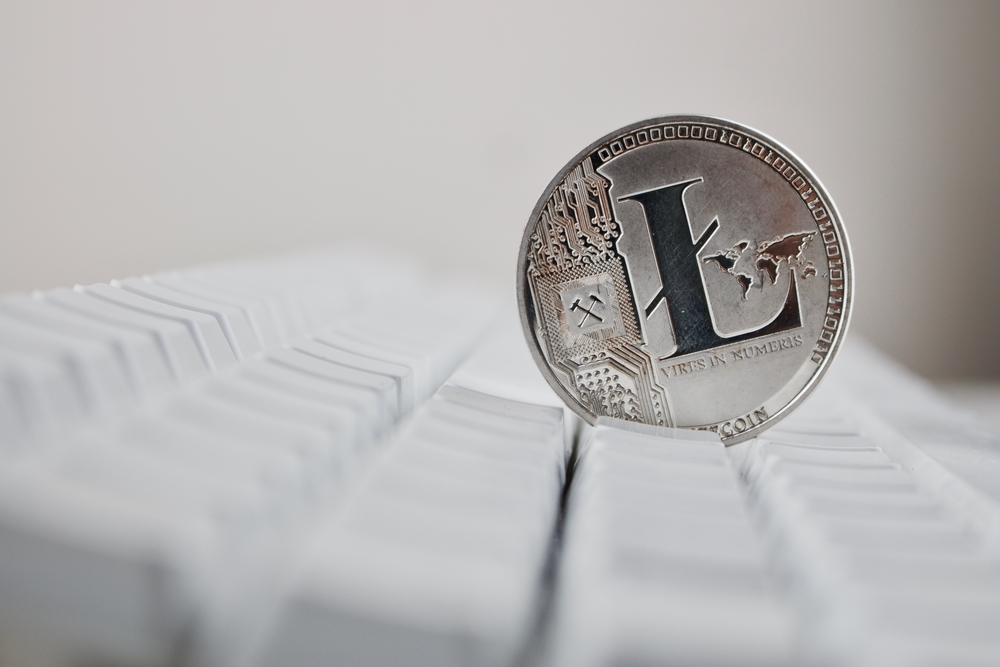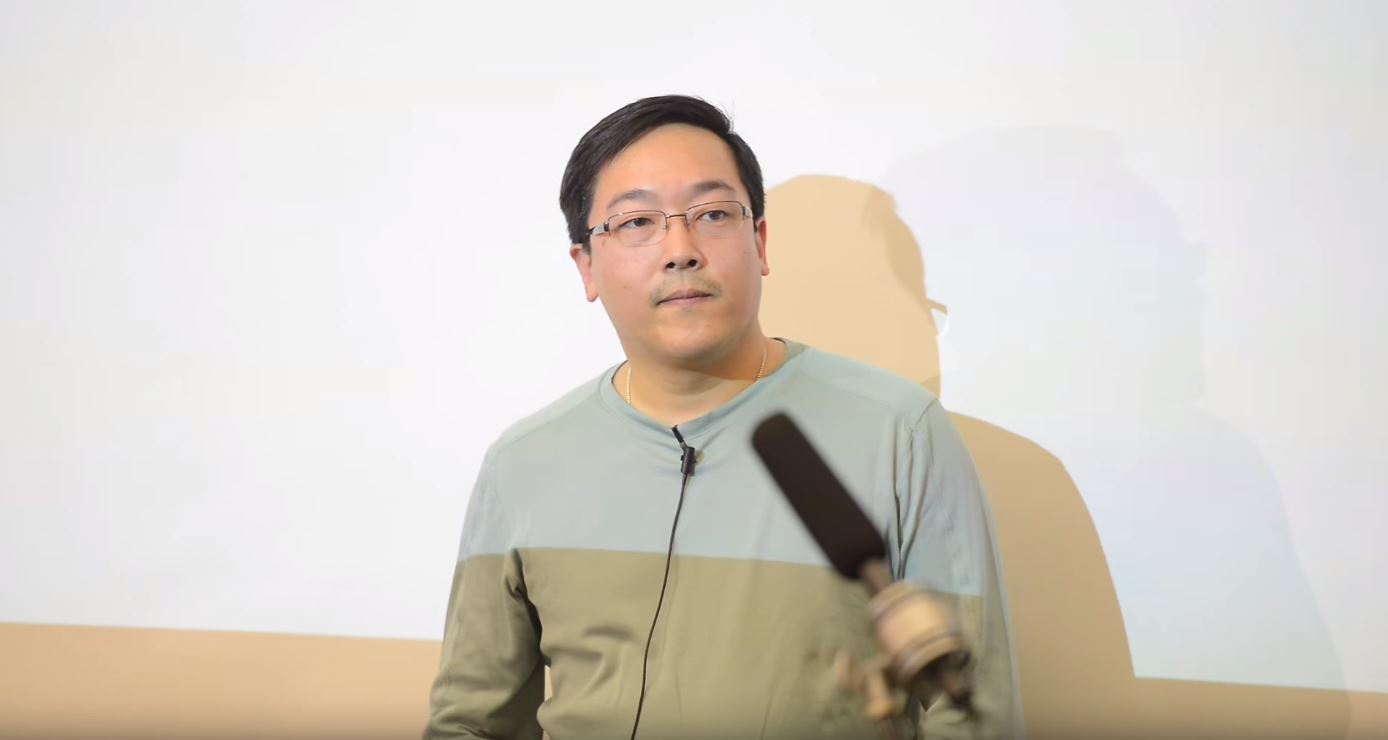Litecoin’s Franklyn Richards Says Cryptocurrency Will Be Institutionalized — And That’s OK

Everyone’s heard of Litecoin. Not to mention its charismatic creator Charlie Lee who sold all his LTC at the end of last year. A surprise move. Yet one that was meant to remove any conflict of interest between his active social media presence and the price of the coin he created.
But did you know that Charlie Lee, as revered as he is in the crypto world, hasn’t actively developed code for Litecoin in years? Or that another man, Franklyn Richards, is working tirelessly behind the scenes to keep the Litecoin banner flying high?

As founding director of the Litecoin Foundation , operator of Litecoin.com, and COO of Zulu Republic , a blockchain company that develops a suite of products for Litecoin, you would think that Franklyn would be a little higher on the radar.
But a cursory search for information on the Litecoin pioneer brings up few results. He doesn’t use LinkedIn, he hasn’t appeared in many interviews, and you’d have a hard time trying to guess his Twitter handle.
So, who is Franklyn Richards? What’s his role with Litecoin? How did he meet Charlie Lee? What are his views on mass adoption, atomic swaps, and Bitcoin Cash? And where does he see the future of the “silver to bitcoin’s gold?” (an expression he vehemently hates by the way).
I caught up with the mysterious Litecoin.com COO (and his mom) at Web Summit in Lisbon last week to find out.
You’re a hard man to get information about. Is privacy important to you?
“Umm, maybe,” he ponders. “I’m very active. I’m just not necessarily interested [in social media]. If it’s business-related, I’ll be there, if it interests me.
But I’m generally not a big fan of wasting time on Twitter… I’m not interested in a lot of speculation. I’m much more interested in putting my head down and working on building the stuff that’s going to be big next time around.”
Why do you believe in cryptocurrency, and how did it all start for you?
“Honestly, I first got involved as most people did in just a “what’s the hype of this new thing?” Part of it is “I can make money from this,” but the more I looked into it beyond just the surface level of digital money, the more interested I became.
I saw it as the next big stepping stone in finance. And I believe that we’re just at the beginning of that. I’m looking forward to spending time building the future of money.”
Interesting. So, how does a newly-turned crypto enthusiast from Nottingham, UK (“the land of Robinhood,” he jokes) get involved with an ex-Google employee and Litecoin founder all the way over in Silicon Valley? The internet is a powerful tool for making the right connections, even back in 2013.
Franklyn didn’t rub shoulders with Charlie at some star-studded crypto event or even meet while working in person. He reached out to him on Reddit.

So, why Litecoin in particular?
“Really, Litecoin was just because Bitcoin was too expensive… It’s a bad thing to say, but it’s a psychological thing that affects most people, and I don’t think we should ignore that. People look at something like Bitcoin, and they say, “this is so much money.”
At the time, bitcoin was just breaking past $100, and I was sitting down with my mother in a pub [points to her at the other end of the interview table], and I said: “We should get one of these!”
The kindly lady accompanying Franklyn (whom I had wrongly assumed was his PR) smiles and lets out a chuckle. I turn to her and ask what her reaction was, knowing full well the kind of response I could expect from my own parents about buying something you can’t see (especially after a few pints).
But she calmly says, “I listened to his explanation of his understanding and belief of where this technology was going, and I put faith in him. I trusted him, and I actually invested some money,” she reveals, before pausing, “which we lost.” And then lets out a belly laugh, the kind that the British do so well when things aren’t going their way.
Franklyn looks at his mother without annoyance. It’s clear the strength of the dynamic this mother-son duo has going on. I get the suspicion that she would support him through thick and thin, even if crypto and Litecoin were to implode on themselves.
He strokes his beard briefly and says, “well, you didn’t really understand the technology, but you had the trust in me to join me and put some money into it. Price is a huge part of that, but I think we should try to move away from it.
I believe that in the future people will be using Bitcoin, and they won’t know they’re using it. Because, why do we use any of the fiat currencies? We don’t use it because we’re going to make money from it, we use it because it’s forced on us.”
He quickly counters, understanding the weight of his words:
“Not that Bitcoin will be forced on people! It’s just better for institutions to use the technology, so people will be using it without knowing it, and I think that is going to be a huge driver for the price. A lot of people won’t know they’re using it, but they will certainly reap the benefits from it. I think that’s basically the future of cryptocurrencies.”
So, cryptocurrencies will be taken over by centralized authorities in the end?
Franklyn nods his head and says, “We have to be realistic, I think centralized institutions have a great benefit to derive from it, and they will pass that benefit onto their users. It’s a race. It’s capitalism. If I can offer my users something better and cheaper, more users will come to me. We’re currently seeing an institutional race to accept this.
The New York Stock Exchange parent company Ice Markets recently launched Bakkt and another one–is it the CME?–is also launching institutional trading and security of these assets. Gemini is also getting into this. People realize that it doesn’t matter whether the customers know anything about this technology. We don’t know necessarily how cards or banks work, but we know that they provide us a service.
If businesses provide a better service using a decentralized currency like Litecoin or Bitcoin, then it’s just better for them [the customers], and I think that’s how it’s going to work…

Most of the value will be derived from people invisibly using it without knowing. There’s only a certain section of us that are hardcore into it, like “I’m going to hold my private keys,” “it’s the future,” “down with the government!” His eyes light up.
“I like to distance myself from those people. I think we should be working together, instead of slapping down these things, we should be showing them there is a better way.”
Considering Franklyn’s strong stance on capitalism and institutions taking over cryptocurrency, presumably, he’s in favor of regulation?
“I don’t think regulation is necessarily needed,” he states, catching me off guard. Since so many people point to lack of regulation as the single biggest barrier to institutional adoption of cryptocurrencies, Franklyn’s answer is unexpected. But he continues to justify his response in his delightfully British and articulate manner.
“You can’t regulate something without controlling it. All it will do is inhibit its growth. If states are very friendly and welcoming to it (which they should be) that would be better, but even if they put a ban on bitcoin, people will still use bitcoin.
There’s a saying which I don’t think is passed around enough anymore and that’s “You can take your country out of bitcoin, but you can’t take bitcoin out of your country.” And it’s very true.
What about those who believe that Litecoin will replace Bitcoin or see it is Bitcoin 2.0?
“I think Bitcoin will always have its place as number one, at least for the foreseeable future. Part of it is the provenance, being the first of its kind. The brand is very strong. That’s why I think people like Roger Ver and those who are big into Bitcoin Cash just say, “Bitcoin Cash, Bitcoin Cash,” and they push the word “Bitcoin” because they know how strong that association is.”
His face flushes with indignance as he states: “If they didn’t have that association in its name, Bitcoin Cash would not be worth anywhere near its value currently, even with Roger and his billions backing to push and promote this thing.
Bitcoin Cash is fine to exist, but I’m not too fond or welcoming of t he social attacks. We should be more open. If you can’t stand on your own two feet without riding on the coattails of something else, then that’s a very weak asset I believe.”
He continues, clearly gaining momentum and fully in his stride:
“Litecoin doesn’t use the Bitcoin name. We never say it’s Bitcoin 2.0, a lot of these things that have come out use this kind of hype. We like to stay away from using that terminology because it shows how dependent you are on being linked to something so much stronger. Litecoin stands on its own. And it has for a long time.
You’ve heard the phrase ‘silver to bitcoin’s gold.’ I’m not a fan of it. People use it because it’s a fun, easy thing, but it’s died down a lot, and the community and Litecoin understand why you shouldn’t really use that.”
What are Litecoin’s main advantages then?
“We have lower fees and faster block times,” he says, and then pauses, “but let’s be honest with ourselves, we may do faster block times, but having faster block times means that those blocks are less secure because it takes 2.5 minutes to roll back a block rather than those 10 minutes…
But Litecoin is very strong and is very much a complement rather than a competitor. Bitcoin will be number 1 for a very long time, but these two things strengthen each other. We don’t compete, we benefit, especially with the Lightning Network and atomic swaps.”
Let’s talk a little about the Lightning Network and Atomic Swaps…
“With the Lightning Network coming out if you want to send money over it and atomic swaps I can send my litecoin, and I can pay you in bitcoin, and it’s just done all automatically and seamlessly.
It’s not completely there yet, but it will be. And I’m very excited about it. It will also mean that people who want to transact bitcoin to bitcoin on the Lightning Network could use litecoin as an intermediary which would lower their fees.
Litecoin has a huge amount of liquidity in the market which is very important; currently, no other coin really has that in the market. Ethereum is fine, but it’s not money; it’s an app platform, and it’s not really decentralized anymore because people are printing tokens on the network. Its blockchain’s gone from a few gigabytes to over a terabyte or something crazy like that.
Bitcoin and Litecoin do one thing very well, and that is money. And it’s money to complement one another, not beat each other up.”
Let’s talk about the Litecoin Foundation and Charlie Lee…
“The Litecoin foundation is a non-profit in Singapore set up to support the ecosystem of Litecoin. So, we are not connected to Litecoin, we do not develop Litecoin, we simply support business as well as people looking to learn more about the technology. If you were to get rid of the foundation, Litecoin would still exist by itself as a strong, secure form of money. As long as it’s separate and not baked into the thing, it’s OK.

The problem with a lot of new stuff being started up is their companies are ICO or venture capital funded, they are accountable to people, and they have this token that has to generate money for investors… With the Litecoin Foundation, we’re just another organization that’s set up to say “this is cool, you should look at it.”
Franklyn has a convicted look on his face and earnest expression in his eyes. It’s clear that he doesn’t mince his words.
“I believe (and Charlie understood this when he stepped away from the project) that it should do just fine without him. Many people may not know this, but Charlie has not really developed code for Litecoin in ages, years I believe now.
We have another team of people who are separate from the Litecoin foundation. We sponsor them, we give them money, but we do not force them to do anything, it’s just a donation to say ‘keep up the good work.’
I believe he wants to go down as the creator of this new technology, Litecoin, and that’s where he will derive his value and appreciation. It’s like, “I have money, I got in early in this technology, it’s not about money for me.”
It’s like having a child. He wants to see that child succeed otherwise he may feel like he’s failed. But, he has stepped away from a lot of stuff, and he is basically now Litecoin’s main promoter and outward face of the project. He opens the door on many opportunities we would not otherwise have had, such as with HTC.
He’s held up as a figurehead. His role is as a father figure to us to be somewhat hands-off and let us get on more and more independently but steer the ship when needed.

Myself, I run Litecoin.com by myself. The Foundation is its own thing, separate from Litecoin.com. We’re all separate. If anyone of us was to disappear the ecosystem would still remain very much intact…
You said at the beginning that it was hard to find information on me. Part of that is down to me, but I am certainly a lot busier than a lot of people would realize.”
Indeed. It sounds as if Franklyn is very much a one-man show. But then again, we know that’s not the nature of crypto, and neither is it the truth. Litecoin is a community with no single person responsible for its rise or fall, failure or success. So with that in mind…
What are the main challenges for Litecoin moving forward?
“We will have the exact same scaling issues moving forward as Bitcoin,” Franklyn admits, although he counters, “They are not so prevalent now because fewer people transact on litecoin. We still have tens of thousands of transactions every day, and millions–if not hundreds of millions–moved over the Litecoin network…
We’re also working with Lightning Labs. It’s not “Bitcoin then Litecoin.” They’re doing them at the same time. Lightning Labs is implementing Litecoin in the network alongside Bitcoin at the same time.
I believe the future will be many assets connected to each other, but right now it’s Bitcoin and Litecoin leading that. It’s not Bitcoin and Ethereum, or Bitcoin and Ripple, or Bitcoin and Bitcoin Cash. It’s Bitcoin and Litecoin, the two things that focus on doing one thing very well and that’s money.
And my last question, then. Where do you see this whole thing in 10 years’ time?
“In 10 years’ time?” His eyes widen, “Much bigger than it is now. I believe it will take a huge step towards the institutional side, and it being trickled down into users without them necessarily realizing it.
I won’t speculate on the price of these assets [bummer], but I will say that if you talk to me in 10 years from now, we’ll look back and go “Wow, everyone was panicking that this thing was dying and was in the gutter!” He grins. His mom smiles. I return the gesture. We all share a common understanding and faith that crypto is, indeed, the future.
“Compared to assets like gold with a market cap of $7 trillion, we’re a fraction of that. We have a long way to go, and we’re just getting started.”
So buckle up and enjoy the ride.
Featured Image from Shutterstock